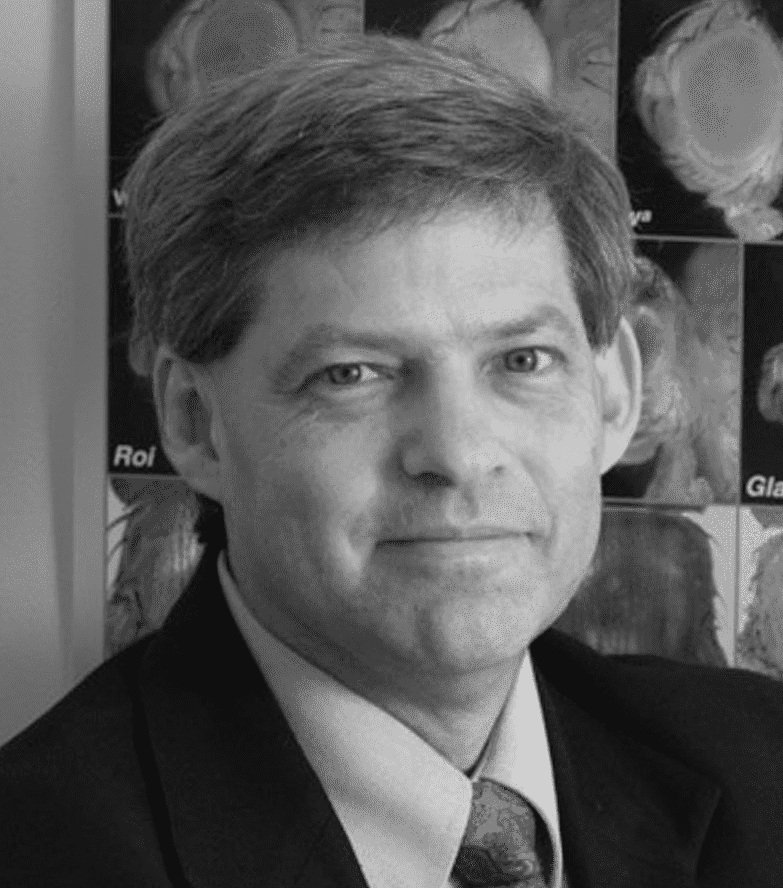AREAS OF SPECIALTY:
Molecular genetics of aging - genetic interventions that increase healthy aging and longevity
Chromatin/role of epigenetic stability in healthy aging and longevity
Retrotransposons in aging and disease
Stephen L. Helfand, M.D.
Dr. Stephen L. Helfand is the George D. Eggleston Endowed Professor of Biochemistry, Professor in Biology and Medicine in the Department of Molecular Biology, Cell Biology and Biochemistry at Brown University and Vice-Chair for Research in the Department of Neurology at Warren Alpert School of Medicine.
Dr. Helfand received his BS at Stanford University with Distinction and Honors, where he worked with Dr. Norman K. Wessells and discovered the first non-NGF neuronal growth factor later named Ciliary Neurotrophic Factor (CNTF). Dr. Helfand obtained his MD degree from Albert Einstein College of Medicine having also worked in UC London with Dr. Martin Raff, completed his Medical Internship at Montefiore Medical Center and his Neurology Residency at the Massachusetts General Hospital. He is Board Certified in Neurology and Psychiatry. He did his Postdoctoral training at Stanford University with Corey S. Goodman and David S. Hogness and with John Carlson at Yale University. He became a faculty member at UConn Health Center in 1990 and since 2005 has been a Professor in the Department of Molecular Biology, Cell Biology and Biochemistry at Brown University.
Dr. Helfand's laboratory focuses on understanding the molecular genetic mechanisms underlying aging and longevity using the model system, Drosophila melanogaster. His studies have pioneered innovations in biomarkers of aging as well as the understanding and treatment of the deleterious effects of aging and age-related disorders including the discovery of a new genetic pathway, Indy (I’m not dead yet), that mimics the positive benefits of caloric restriction, and can prevent metabolic syndrome in mammalian models. His work on sirtuins and p53, and his studies manipulating mitochondrial physiology, have revealed important genetic contributions to metabolism and aging. More recently he demonstrated the role of chromatin changes with aging and the impact of changes in chromatin on consequent loss of gene silencing in aging, showing a dramatic increase in transposable element mobilization in aging somatic cells suggesting a link between unchecked transposable element activity and aging.
Dr. Helfand is a recipient of a MERIT award from the NIA, an Ellison Medical Foundation Senior Scholar, two Glenn Awards for research in Biological Mechanisms of Aging and the Glenn/AFAR Breakthroughs in Gerontology Award as well as numerous R01 awards from the NIA. He was a charter member of Faculty of 1000, a charter member of the Cellular Mechanisms in Aging and Development (CMAD) Study Section at NIH, a former Editor-in-Chief at Aging Cell and a founding Editor of Aging. His work on the molecular genetics of aging has been published in many jopurnals including Science, Nature, PNAS, Cell Metabolism, Current Biology, Nature Communications, Genetics and Aging Cell. He is a Fellow of the AAAS and Gerontological Society of America and past Chair of the Biological Sciences section of the Gerontological Society of America.

